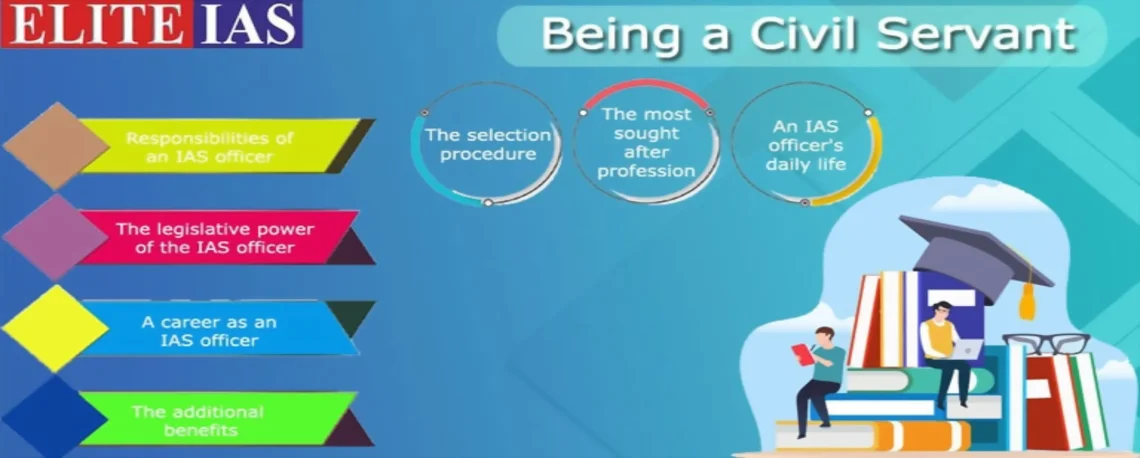The syllabus that UPSC prescribes for the Civil Services Exam is too huge to be comprehended easily. Most importantly, it is your ability to retain, apart from comprehending that counts the most. In case, you are not able to recall the required details while facing the CSE, studying hard serves no purpose.
Why Sharpen Your Memory?
A sharp memory comes into the picture once you comprehend the basic facts. Now, you need to lay more of the building blocks on the foundation thus gained after getting all the basics clearly. Go on studying and go on adding to your knowledge. But, it is not as simple as it seems.
Here are quite a few valid reasons that help an IAS aspirant preparing for the Civil Services Exam understand the significance of sharpening his memory:
1. A sharp memory makes it easier for you to face the CSE:
It is during the time of the Exam that the knowledge thus gained by you would be assessed by UPSC. With a memory not so sharp, it is not likely to be an easy exercise to recall all the required details during the Exam. And that explains the need to sharpen the memory.
2. The unusually vast syllabus:
UPSC syllabus for the CSE is unusually vast. And the more you study, the greater would be the need to study further. And the process goes on and on and on!
You might be sincerely and honestly dedicated to realizing your goal of joining the Indian Administrative Services. And, as a result, you might be studying in the hardest possible manner that you can.
But, you do need to remember whatever you have studied. If you read and forget in a day or two even the simplest of the topics, you must sharpen your memory! Besides, there may be various topics that would be rather simpler. And quite a huge number of the complex ones also.
But, one of the greatest complexities is the vastness of the syllabus. First of all, it is not easy to prepare the entire syllabus comprehending all that you read in a crystal clear manner.
And even if you do, you would find it a Herculean task to remember all that you have been studying all the time. But remembering all the information you have gained after reading a lot is actually what that counts specifically while you face the CSE!
And the too vast a syllabus for the CSE makes it difficult to a far greater extent. Thus, time and again, an IAS aspirant is reminded of the requirement to sharpen his memory.
3. Too many of the subjects:
The complete preparation for the Civil Services Exam requires an IAS aspirant to study a vast variety of the subjects. No wonder, he finds himself reading:
a) History
b) Geography
c) Science
d) Polity
e) Current Affairs
f) Ecology & Environment
g) Economy
h) Reasoning
i) Mental Ability
j) Data Interpretation
k) Disaster management
l) Ethics, Integrity & Aptitude, and what not!
Practically speaking, an IAS aspirant is required to study almost everything under the Sun for the Union Public Service Commission prescribes a syllabus that is not only too vast, but also requires you to study a variety of them. And there is no escape!
Needless to say, you must have a miraculous memory to remember the various types of the knowledge that you gain studying various types of the subjects as per the requirements of the UPSC syllabus.
4. Variety of the resources to study from:
It is only logical that you would be required to opt for various types of the resources to study various types of the subjects. And that further intensifies the requirement for the sharpest of the sharp memories if you aim at cracking the CSE at the first go itself!
You would be required to go reading/listening:
(a) Newspapers. It is advisable to read The Hindu
(b) Magazines. You may opt for The Yojana Magazine and the The Kurukshetra Magazine
(c) Rajya Sabha TV, Lok Sabha TV, AIR etc.
(d) NCERT Books
(e) Books by various other authors
(f) Websites including the Government Websites, etc.
And time and again, the need for a sharp, nay sharpest of the sharp memories re-surfaces during the preparation for the CSE. The huge variety of the resources that you read from as listed above does compel to remember what you have been reading and from where!
Till now, we have been focusing on the need for sharpening the memory. That is to say, what all makes the exercise simply indispensable. Once the point is driven back home that an IAS aspirant must have sharpest of the sharp memories to help him score an edge over the competition, he must find the ways to make his memory sharper.
The Smartest Tips for the Sharpest of the Memories
You might be having your own ideas for sharpening the memory. But, the point to be noted is that the strategy you opt for must yield 100% of the results. There is no scope for any kind of the failure for that would affect your performance in the CSE.
Here are some of the smartest tips for the sharpest of the memories:
1. Prepare the Mind Maps:
Mind Maps prove to be highly effective when it comes to memorizing the figures and facts. Properly structured and systematically sequenced diagrams transform the boring details into an interesting learning experience.
What makes the diagrams effective is that they are structured in a manner that your brain expects everything to take place. And that makes it easier for the learner to comprehend, and as a result, memorize. Needless to say, it is one of the most natural ways to memorize.
What does it require to draw a Mind Map?
(a) Learning to build a hierarchical structure for the Mind Map.
(b) Take care that all the parts of the structure are unified. Thus, holistically, the entire structure should reflect the complete concept.
Where should you use a Mind Map?
Rather than making the bulleted lists or opting for the paragraphs while making notes, you may draw a Mind Map. It helps you recall all that is co-related at a much faster pace. The technique is highly useful while reading the Newspapers, books etc.
How to draw a Mind Map?
Following the steps given below, you may easily draw a Mind Map.
Step (i)
Keep the major topic in the center of the page. Write the sub-topics around the same. Interconnect them as and when required.
Step (ii)
Take down the significant points below each of the sub-topics. It is a good idea to place various sub-topics by means of asking various questions. You may also co-relate various points by writing appropriate specifications.
It should be noted that the Mind Maps are used as a trigger to remind you all that is related to a topic. Thus, there is no scope for long stories. You should include the relevant points only.
Build Memory Palace:
It is a memory enhancing technique that employs visualization as co-related with the spatial memory. If followed properly, the technique will surprise you pleasantly, changing the way you have been studying ever since childhood. The technique helps you call the entire information quickly and easily.
It is interesting to note that the Memory Palace technique was used by the ancient Romans and Greeks for effectively delivering the public speeches. The method is so effective that it is being used even by the champions in various memory contests.
Here is an example to help you build the Memory Palace. In case you have to remember a list of the countries including 10 entries, you may think of a story that links all of them. Now, narrate this self-built story to yourself and you will find yourself recalling the names of all the countries. It is understandable that building the story might take some time. However, once you do so, the results would be simply amazing!
Tips to facilitate building the Memory Palace
(i) Be Unique
Simply be unique. Employ your imagination to think of the story rather than simply making the Memory Palace a store house for the information. It would help to make the Memory Palace impressive if you think out of the box.
(ii) You can be weird
It is not essential to build a logical story. Remember you are not going to be a novelist. Rather you have to sharpen your memory. And the more weird a story is, the easier you will find it to remember the same.
(iii) Not more than a single topic for a Memory Palace
It is advisable that you opt for only one topic for a Memory palace. Not doing so would only serve to crowd the Palace with too much of the information. And that will confuse you a great deal rather than helping you memorize the details.
(iv) Understand the concept you are building the Memory Palace for
First of all, it is advisable to understand the concept before you build the same into a story. Besides, do not give up on the attempt for building the Memory Palace does take a little time. However, once you accomplish the task successfully, it will be great fun using the same for sharpening your memory.
Besides, it is heartening to note that building a Memory Palace for the first time might be time consuming. But, as you go building one Memory Palace after another, you skills for building the Palace will get polished. Besides, your memory will be sharpened considerably.
And gradually, you will find that making use of the Memory palace technique, you would be able to accomplish with one revision what you had been doing earlier with 5. And, you would also find yourself answering in a highly logical manner while facing the Exam than what it had been otherwise. Making a Mind Map first and then converting the same into the Memory Palace also proves to be effective.
3. Repetition at Regular Intervals:
It is the easiest of the all the techniques you would find most of the IAS aspirants highly fond of. You are simply required to revise more frequently. You simply have to read the entire topic again, and yet again depending upon for how long can you remember the details. You are not to allow yourself to forget the details and begin to read the topic again before you happen to forget the information gained.
And it is only logical that the topics you find easier would not be needing as many of the revisions as the complex ones do. So, you have to see to it for yourself as for how many times you would need to revise a specific topic.
What else does it take to sharpen the memory?
There is a lot more that counts apart from simply opting for effective memory sharpening techniques. Go reading to find what is it?
1. A relaxed mind:
Apart from all the memory techniques discussed above, it goes a long way to maintain a relaxed frame of mind. You are more liable to forget whatever you have studied with a stressed mind. Rather than being stressed all the time, feeling obsessed with the idea of clearing the Civil Services Exam, study with a calm and relaxed mind. Doing so will help you not only to comprehend well, but also retain the information in your memory for longer than usual durations.
2. Look after your health:
And looking after one’s health pays, of course. There is an old adage that a healthy mind resides in a healthy body. If you do not feel fit and fine, you are not very likely to focus well on whatever you study, let alone memorizing the details properly.
3. Nutritious meals and proper sleep does count:
Taking nutritious meals on time and sleeping for 7-8 hours every day helps sharpen the memory. Lack of proper and timely consumed meals and too little of the sleep would only prove detrimental for your memory. And do not forget to exercise. Exercising helps reduce the stress levels calming your mind in turn. Hence, you are better able to memorize.
4. Do not allow any negativity to influence you:
Well, it is advisable to keep yourself away from all the negative influences. Do not chat with the negative minded people. Keep the environment around yourself cool, calm and quiet. Remember, you do not have time for any kind of the influence that diverts your mind from learning and memorizing to any other activity.
5. Simply focus on preparing for the Exam and sharpening your memory:
If you do so, it would serve to enhance your focus and concentration to a great deal. As a result, not only will you learn better, but also memorize all the facts with a greater accuracy. And you will also find yourself remembering all the details for quite long spans of time.
6. Do not forget to make a self assessment:
You may answer the Previous Years’ CSE question papers. Solve the Test Series. Attempt the Mock Tests. These are the exercises that will help you assess with how much of the ease you have been able to remember whatever you had been studying.
Seek guidance to get your queries answered:
Ignoring to get any of your queries solved would be highly detrimental to your efforts at sharpening your memory. If you aim at optimizing the results for whatever has been said above, do not leave any of your queries unanswered. Seek guidance. You may approach the faculty members in case you have got yourself enrolled at an IAS coaching institution. It will help you memorize the required details with a greater ease for once your queries are solved, the concepts are getting clearer. That facilitates a better comprehension, and of course, helps to remember the information thus gained for long and with a better accuracy.
Conclusion
Apart from making use of all that has been said above, it goes a long way when you learn to greet and congratulate yourself. It is a great feel good factor. A positive self image helps enhance your confidence. And with an increased confidence, not only can you learn better, but can also memorize all the facts better for longer than you might have done otherwise.
More Articles To Read
Tips to get your preparation for IAS started & Debunking some of the myths about UPSC IAS preparation
All the IAS aspirants usually get bored with the CSE pattern are in for a change!
Common Doubts Students Have Regarding UPSC CSE Preparation
Civil Services Exam: Myths vs. Truth
How to read The Hindu Effectively in Order to Clear the IAS Exam?
For How Long Should You Study To Prepare Successfully For The IAS Exam?
Tips to Boost Your Memory for UPSC Exam!
What Makes The UPSC Civil Services Aspirants Win Or Lose?
IAS Salary: How much do the Indian Administrative Services pay?
How Does A Well Thought Of Head-Start Support Your Preparation For The IAS Exam?
Mains, CSE: Get cracking on It! And Push Your Rank Higher to Join IAS.
How To Qualify The Qualifying Prelims Within One Go!
Top Rated IAS Coaching in Delhi



